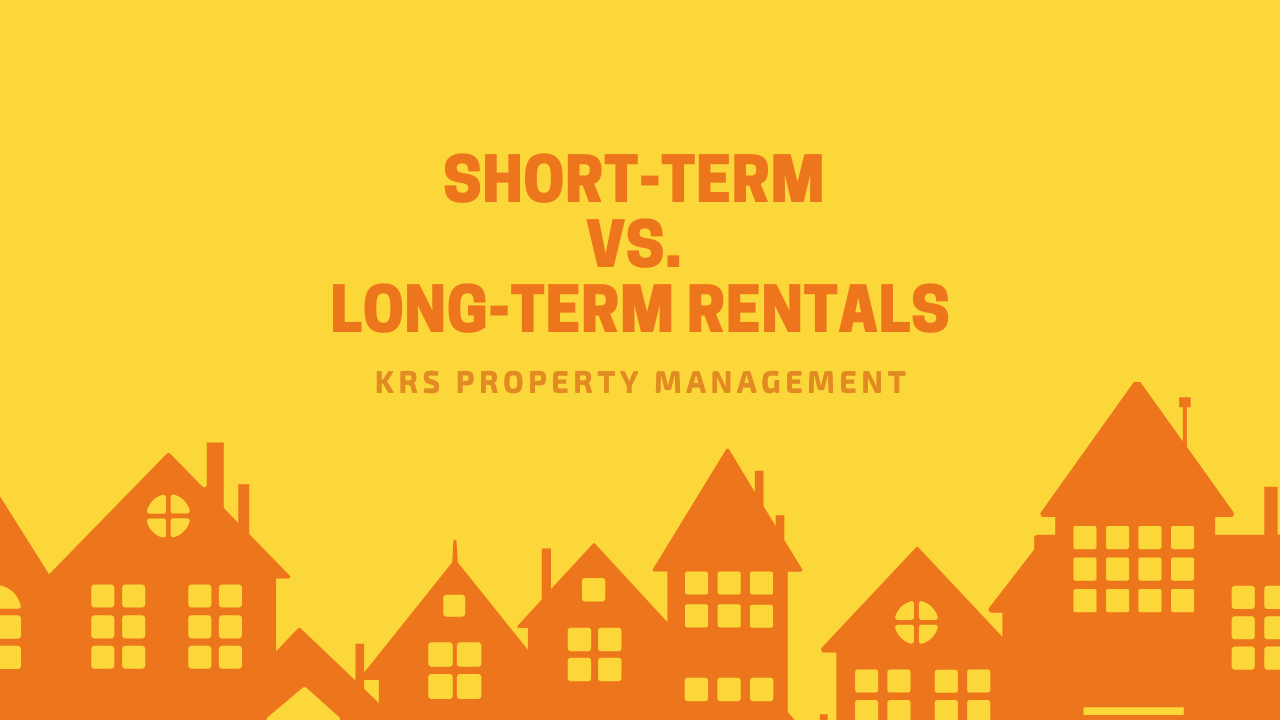
Key Takeaways:
Short-Term Rentals Offer Flexibility and High Returns: Ideal for investors in tourism-driven markets, short-term rentals can generate strong seasonal income but require active management and regulatory awareness.
Long-Term Rentals Provide Stability and Predictable Cash Flow: Suited for investors prioritizing steady income and low turnover, long-term rentals emphasize consistency and compliance with landlord-tenant laws.
Management Intensity and Legal Compliance Vary Sharply: Short-term rentals function like hospitality businesses needing constant oversight, while long-term rentals thrive on stable relationships and professional property management support.
Rental property investments continue to remain a reliable source of wealth generation. However, real estate investors are becoming more worried about making an important strategic decision: choosing between short-term and long-term rentals.
Each model has its unique benefits, setbacks, and management approaches. Choosing the appropriate rental will depend on various factors, including property location, risk tolerance, operational capabilities, and financial goals. It is essential to understand these dynamics to maximize returns, ensure consistent income, and comply with local requirements.
In this article, the team at KRS Property Management will provide an in-depth explanation of short-term and long-term rentals, comparing their regulatory framework, profitability, management requirements, and suitability for different investment strategies.
HOW MUCH IS YOUR RENTAL WORTH?
BOOK A FREE ANALYSIS TODAY.
Defining Short-Term vs. Long-Term Rentals
Real estate investors need to understand what differentiates short-term from long-term rentals before exploring their strengths and weaknesses. Although both models are profitable, they have unique differences in their operations, market exposure, management intensity, and income stability.
Short-Term Rentals
These are often referred to as vacation rentals. Tenants typically lease them for periods ranging from one day to several weeks. Short-term rentals are often patronized by temporary residents, business travellers, and tourists.

Examples of such properties include apartments listed on vacation rental platforms (examples of popular ones are Airbnb, Booking.com, and Vrbo), beachfront condos rented weekly, and properties used for corporate housing and seasonal tourism.
Long-Term Rentals
For a rental to be classified as long-term, the lease must last for six months or above and is often governed by formal lease agreements.
Tenants who seek stable housing (for example, students, professionals, or families) patronize these properties. Long-term rental property owners benefit from predictable, ongoing income.
Examples of such properties include apartments under annual lease agreements, single-family properties rented to families, and townhouses for long-term residents.
Income Potential and Cash Flow Variability
Income potential is one of the primary factors that determines if an investor will choose a short-term or long-term rental property. Short-term rentals typically offer higher nightly rates compared to long-term rentals.
For business districts or tourist locations with high demand, the gross income during peak seasons is significantly greater. The advantages of short-term rentals include the following:
High-income potential in markets driven by tourism.
Owners can adjust rates based on holidays, events, or demand (dynamic pricing).
During off-peak periods, the owner can also use the property (flexibility).
The disadvantages of short-term rentals are:
Profitability can be eroded during periods of low occupancy
Income fluctuates due to market saturation, travel trends, and seasonality
To maintain bookings, the ongoing requirements are marketing and listing management
Short-term rentals are suitable for investors who seek maximum returns and flexibility and can effectively manage volatility.
Typically, long-term rentals provide stable and predictable monthly income (although lower when compared to short-term rentals). Such consistency provides reliability. The advantages are:
The predictable cash flow offers ease of financial planning
Once tenants secure the property, vacancy periods are minimal
Rental income is guaranteed throughout the lease duration
The setbacks of long-term rentals include:
Missed opportunities to enjoy a higher seasonal income in some markets
Increase in rents is subject to lease terms or local laws on rent control
The ability to adjust rental income due to market trends is limited because of fixed rental rates
Long-term rentals favor investors who prioritize stability and predictability.
HAVE A QUESTION?
ASK A PROPERTY MANAGEMENT EXPERT.
Management and Operational Demands
The long-term success and profitability of a rental property depend on the management intensity required.

Due to the frequent turnover, short-term rentals require hands-on management. Part of the operational requirements includes:
Complying with tax requirements and local licensing
Marketing listings
Responding to booking inquiries
Managing reviews
Guest communications
Cleaning
Maintenance between guests
Coordinating check-ins and check-outs
To be successful with multiple short-rental properties, the investor needs to hire a professional property management company that specializes in managing short-term rentals. Although their services require a fee, the professional operation and compliance attract higher returns. Short-term rentals are like hospitality businesses and require continuous engagement.
For long-term rentals, the labor is less intensive after a tenant is secured. The requirements for operation include:
Tenant screening
Lease agreement
Rent collection
Occasional repairs and scheduled maintenance
Lease renewal
Compliance with housing laws
Financial record-keeping
Although some long-term rental property owners personally manage the property, hiring a property management company is advisable for investors with larger portfolios or properties that are far from their location. Long-term rentals operate as traditional real estate investments. It emphasizes stability and long-term relationships.
Regulatory and Legal Considerations
One of the most essential but often underestimated factors that differentiates short-term and long-term rentals is legal compliance. Before purchasing a property, it is essential to understand the local regulations. Failure to comply can lead to legal disputes, fines, and loss of rental licenses.

Short-term rentals have strict regulations that keep evolving, especially in cities and resort areas with tourism pressure and housing shortages. Common regulatory requirements for short-term rentals are:
Zoning compliance (some residential areas prohibit short-term rentals)
Obtaining local permits or licenses
Restrictions on the duration and frequency of rental
Collection and remittance of transient occupancy and tourism taxes
Compliance with occupancy and safety standards
For long-term rentals, landlord-tenant laws at the state and local levels must be abided.
These laws define lease requirements, landlords' rights, tenants' rights, eviction procedures, and fair housing compliance. Although these laws tend to be predictable and stable, landlords are required to strictly adhere to non-discriminatory practices, security depository handling, and maintenance standards.
Final Thoughts
Choosing between short-term and long-term rental properties is not a question of which is universally superior. Instead, it helps to align the property time with management capacity, location, and investment goals.
Short-term rentals provide strong demand in tourism-driven markets, flexibility, and high potential returns, but they require tolerance for income variability, regulatory vigilance, and active management.
Conversely, long-term rentals offer predictable income, lower operational costs, and stability for investors who seek steady, passive returns.
Apart from strategy, success in rental real estate is also based on adaptability, due diligence, and execution. If you’re seeking property management expertise, reach out to KRS Property Management today for help navigating short-term or long-term rental properties.






